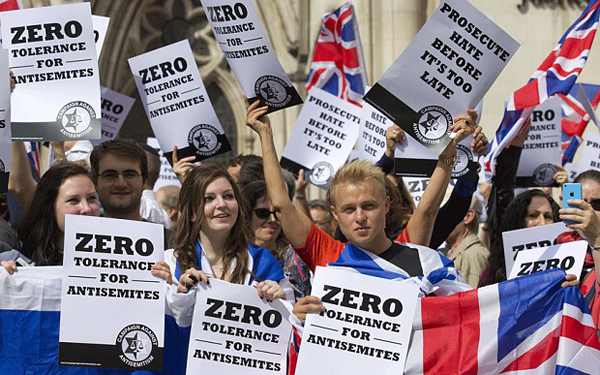The Students’ Society of McGill University (SSMU) has been plagued by allegations of anti-Semitism since its General Assembly (GA) in Fall 2017, where students failed to ratify a Jewish student to the Board of Directors (BoD) allegedly based in part on his pro-Israel affiliations. In response to these accusations, SSMU Legislative Council approved a motion at its March 15 meeting to implement a series of recommendations designed to make the GA a more inclusive space for Jewish students.
Among these recommendations was the adoption of a new definition of the term ‘anti-Semitism’ to address instances of prejudice against Jewish students within SSMU institutions. Other suggestions included education for McGill students and mandatory training for SSMU executives on anti-Semitism.
The recommendations came from the SSMU Anti-Semitism Committee, a BoD committee commissioned to address instances of anti-Semitism and propose preventative mechanisms within the McGill community. The committee includes representatives from the Jewish Studies Students’ Association, Chabad at McGill, Israel on Campus, Am McGill, Hillel McGill, Independent Jewish Voices, a SSMU Director, and a SSMU Councillor.
Of their recommendations, one of the most contentious was the adoption of a definition of anti-Semitism in accordance with the European Union (EU) Fundamental Rights Agency (FRA) definition.
“Anti-Semitism is a certain perception of Jews, which may be expressed as hatred toward Jews,” the FRA definition reads. “Rhetorical and physical manifestations of anti-Semitism are directed toward Jewish or non-Jewish individuals and/or their property, toward Jewish community institutions and religious facilities. In addition, such manifestations could also target the state of Israel, conceived as a Jewish collectivity.”
Though the definition was widely accepted and reaffirmed by both the Ottawa Protocol and the London Declaration on Combating Antisemitism, neither the FRA nor the EU ever officially adopted it. In 2013 the FRA website dropped the working paper which included the “working definition of anti-Semitism” following controversy regarding a clause which some claimed silenced criticism of Israel. SSMU’s definition includes this clause.
“Examples of the ways in which anti-Semitism manifests itself with regard to the State of Israel taking into account the overall context could include […denying] Jewish people their right to self-determination, defined by the UN Charter as ‘the right to freely determine their political status and freely pursue their economic, social and cultural development,” the clause reads.
This clause drew the most controversy at Council on March 15. Though Palestinians’ right to self-determination was addressed in a footnote on the motion, those who support groups that advocate for human rights in Palestine—such as Boycott, Divestment, Sanctions (BDS) and Solidarity for Palestinian Human Rights (SPHR)—raised concerns that this footnote was not included as a clause.
“I think there’s a lot of issues as to whether [criticism of the State of Israel and anti-Semitism] can be separated,” Social Work Students’ Association representative Matthew Savage said in an interview with The McGill Tribune. “I would have prefered to see the full UN definition instead of half of it in the clause and the rest in the footnote just because without that […] we can’t have an actual conversation about what it means to peacefully protest government abuses of people in their land.”
Independent Jewish Voices (IJV) McGill asserted the ways in which discussion surrounding Israel-Palestine is integral to ensuring that no voices are left out.
“IJV McGill wholeheartedly opposes these assertions,” IJV wrote in a statement published to their Facebook page. “Most of the Jews, Palestinians and others who support BDS and/or identify as anti or non-Zionist, act not out of anti-Semitism, but out of an urge to seek justice for the oppressed. Calling these political positions anti-Semitic limits the scope of Jewish identity, as well as the discourse surrounding Israel-Palestine, marginalizing Jews and non-Jews alike who support peace in the region.”
The Anti-Semitism Committee emphasized that the definition was created to reflect the diversity of voices within the Jewish community.
“In regards to those involved in BDS activism, it is important to note that a Jewish pro-BDS activist sat on the committee,” the Anti-Semitism Committee wrote in a statement to the Tribune. “We believe it is imperative that the diverse cross-section of Jewish students represented on this committee are allowed to mobilize their lived experiences to define anti-Semitism. The product of this committee does not define BDS activism as anti-Semitic. Rather, the definition provides ways in which activism regarding Israel can veer into anti-Semitism, and cautions against it.”







